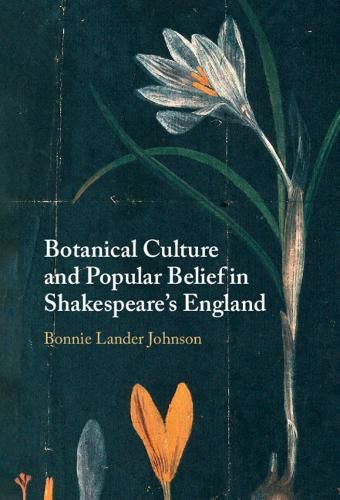Readings Newsletter
Become a Readings Member to make your shopping experience even easier.
Sign in or sign up for free!
You’re not far away from qualifying for FREE standard shipping within Australia
You’ve qualified for FREE standard shipping within Australia
The cart is loading…






The Shakespearean stage offered London playgoers a glimpse of the illiterate and rural plant cultures rapidly disappearing from their increasingly urban and sophisticated lives. The same cultures also circulated in popular texts offstage: bawdy tree ballads, botanical tales, almanacs and accounts of kitchen physic. Here Bonnie Lander Johnson argues that, while Shakespeare's plants offered audiences a nostalgic vision of childhood, domestic education and rural pastimes, this was in fact done with an ironic gesture that claimed for illiterate culture an intellectual relevance ignored by the learned and largely Protestant realm of print. Addressing a long-standing imbalance in early modern scholarship, she reveals how Shakespeare's plays - and the popular, low botanical beliefs they represent - engaged with questions usually deemed high, literate and elite: theological and liturgical controversies, the politics of state, England's role in Elizabethan naval conflict and the increasingly learned realm of medical authority.
$9.00 standard shipping within Australia
FREE standard shipping within Australia for orders over $100.00
Express & International shipping calculated at checkout
The Shakespearean stage offered London playgoers a glimpse of the illiterate and rural plant cultures rapidly disappearing from their increasingly urban and sophisticated lives. The same cultures also circulated in popular texts offstage: bawdy tree ballads, botanical tales, almanacs and accounts of kitchen physic. Here Bonnie Lander Johnson argues that, while Shakespeare's plants offered audiences a nostalgic vision of childhood, domestic education and rural pastimes, this was in fact done with an ironic gesture that claimed for illiterate culture an intellectual relevance ignored by the learned and largely Protestant realm of print. Addressing a long-standing imbalance in early modern scholarship, she reveals how Shakespeare's plays - and the popular, low botanical beliefs they represent - engaged with questions usually deemed high, literate and elite: theological and liturgical controversies, the politics of state, England's role in Elizabethan naval conflict and the increasingly learned realm of medical authority.